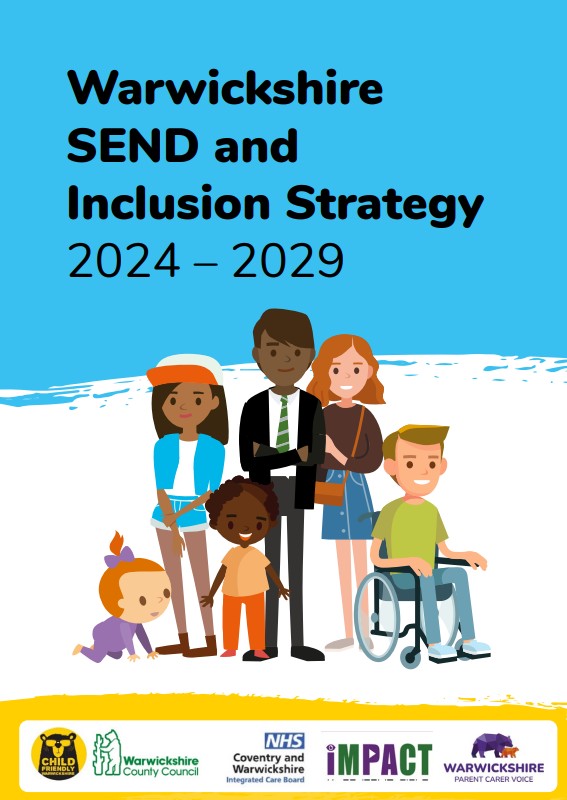Our community said
In developing our SEND and Inclusion Strategy we have engaged with a number of stakeholders in our community including Warwickshire Parent Carer Voice, the SEND Community Forum, the young people’s forum, IMPACT, and schools (both SENCos and head teachers).
A summary of their feedback is below.
Feedback from children and young people with SEND

- Mental health and experience in school is a significant concern and priority for young people with SEND.
- They would like to see increased awareness and reduced stigma around SEND.
- In a video created by IMPACT entitled ‘Wrong Size Fits All’, young people said - “If we don’t feel safe, we can’t be expected to learn. Small things make a big difference. Every interaction has an impact, whether that’s positive or negative. We need to feel that you care”
- Young people with high support needs would like extra-curricular activities within school or the community which they can access, including the support they need to do this.
- They have raised concerns about the delays in accessing support for Attention Deficit Hyperactivity Disorder (ADHD) and the negative impact this can have on young people.
- They want to feel they have an influence over their EHC plans and be actively included at an earlier stage.
- They would like to see an increase in diversity of the young people sharing their experiences, including ethnicity, areas of need and LGBTQ+ experience.
- They would like there to be an IMPACT Apprentice, so that they can represent young people’s views actively throughout the week.
Feedback from parents and carers

- Families need easy access to clear information to support them throughout their SEND journey
- The SEND Local Offer needs to be easy to navigate and up to date, as well as being familiar to professionals, who families look to for support.
- Families feel currently that access to support is a ‘postcode lottery’.
- Families need open and honest communication to enable a more collaborative process. There needs to be clear accountability for provision and support, with clear escalation routes, which they can trust.
- Families highlight that early identification and support, especially at key transitions, will help to prevent escalation of needs and children being out of school or changing placements unnecessarily. Statutory duties should be carried out as a minimum, so that support is provided in a timely manner to avoid escalation of need, including early support for Emotionally Based School Avoidance (EBSA).
- Where an alternative placement is needed, families need clear information and advice at an early stage about the process and type of provision indicated by professional advice.
- Current services, such as Children and Adolescent Mental Health Services (CAMHS), Occupational Therapy and Speech and Language, do not take account of the complexity and range of needs of neurodivergent children and young people. This can lead to a disparity in support as some parents can afford private assessments while others are left without any provision.
- Progress has been made on the Autism Pathway however the ADHD diagnostic assessment needs to be faster, including access to medication. This could be a significant factor in enabling effective support and access to education and family life.
- Families need social care needs to be assessed and understood, informed by relevant knowledge of their child’s particular needs, and support in place to ensure they are not disadvantaged relative to non-disabled peers, including support to access activities in their community.
- Increased working together with parent carers is valued however the four cornerstones of inclusion and coproduction need to be embedded and more consistent.
Feedback from professionals

- The Early Years sector needs more support to ensure successful transition to primary school and a need to ensure that provision for children with SEND is in place from the early years and before starting school.
- Support for Preparation for Adulthood could be improved.
- Communication from professionals and services to families regarding waiting times, assessments and access to services needs to be clear and timely to ensure families are well informed and have the opportunity to ask questions.
- More comprehensive data needs to be available and regularly reviewed to help services understand the levels of need which will enable the correct support and services to be implemented.
- Early intervention and early identification of need for children and young people to ensure they are provided the right support at the right time.
- There is a high need for schools to help reduce the level of exclusions by supporting families
- There is a need for more resourced provisions around the county which will ensure that children and young people will have the opportunity to attend mainstream schools with the correct support in place.
- There is a need for collaborative working between special schools and mainstream schools to offer support, knowledge and guidance.
